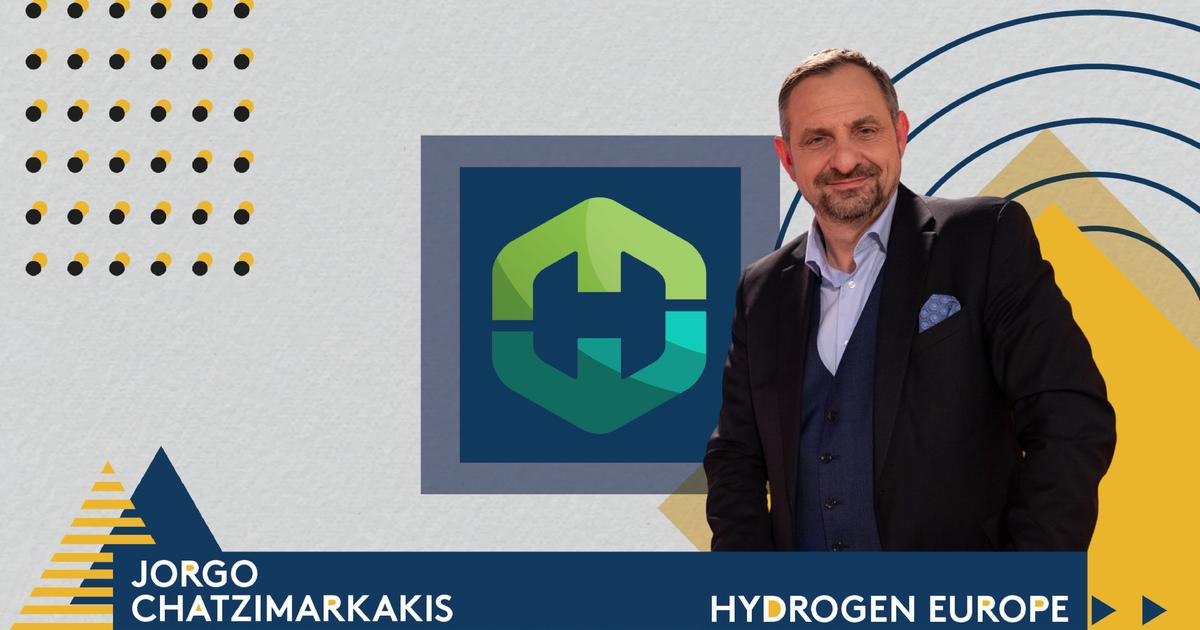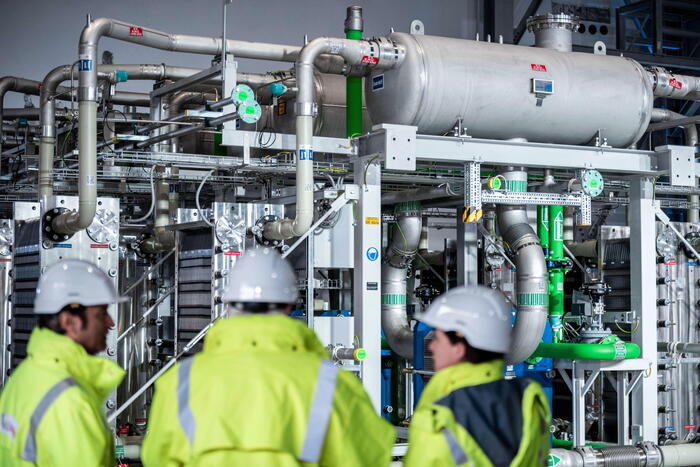The BarMar or H2Med, the hydroduct project between the peninsula and the rest of the European continent, adds a new major partner.
Germany, the country called to take over most of the Iberian exports of green hydrogen, has agreed this Sunday with France, Spain and Portugal —its original promoters— its adherence to the infrastructure and its commitment to extend the tube to its territory.
"We have decided to extend the H2Med, which thanks to European funds will unite Portugal, Spain and France, to Germany, which will be a partner in the infrastructure of this project", said the French president, Emmanuel Macron, at the press conference after the Franco-German summit held in Paris.
The German Chancellor agreed: "This gas pipeline that will connect Portugal, Spain, France and also Germany is a good project for the future and I am very happy that we have been working for a long time in this direction."
The original tube will run between Barcelona and Marseille;
now, the challenge will be to extend it from the second French city to the main points of industrial consumption of the largest European economy.
Macron has indicated that "perhaps, without a doubt", it will be able to expand towards the partners of Central and Eastern Europe.
“The green corridor definitely reinforces its pan-European dimension.
A new Iberian solution, and there are already two, in favor of European energy sovereignty", highlighted, for his part, the Spanish president, Pedro Sánchez, in a message posted on Twitter.
community funding
The entry of Berlin into the energy interconnection project that will connect the peninsula with Germany and perhaps other countries in Central and Eastern Europe, as Macron has advanced, increases the already very high chances that H2Med will obtain European financing.
The war in Ukraine has renewed Germany's interest in securing hydrogen projects, the fuel of the future, as Scholz often calls it.
Although the country adopted its national hydrogen strategy as early as 2020, the sudden need for alternative energy sources to Russian hydrocarbons has made Berlin focus even more on this element to advance its energy transition.
Germany has virtually phased out nuclear power — although it currently keeps its last two reactors running until April — and its plans to phase out coal, until 2038, stand.
That is why you need to find new contributions for your industry and transport.
In this last area, it has already taken decisive steps by inaugurating several hydrogen trains that cover a suburban route in the state of Lower Saxony, replacing the old ones that ran on diesel.
Germany joins H2Med along with France, Portugal and Spain.
After the Treaty of Barcelona, the green corridor definitely strengthens its pan-European dimension.
A new Iberian solution, and there are already two, in favor of European energy sovereignty.💪
— Pedro Sánchez (@sanchezcastejon) January 22, 2023
"In this way, a definitive achievement is achieved for the necessarily European vocation with which Spain has dimensioned this hydroduct since it began to promote it from the beginning of the project", the Spanish Government has valued, for its part, in a statement published late in this Sunday afternoon.
The incorporation of Berlin underlines, in his opinion, "two commitments always expressed by Spain with the implementation of this green energy corridor": the reinforcement of the security and energy autonomy of the EU, and the ambition of Europe with climate neutrality.
Spain's ambition, reiterated by the Executive in recent months, is to become a
hub
for the export of green energy —hydrogen and electricity— to its partners in the center and north.
weeks of negotiations
The pact sealed this Sunday culminates several weeks of negotiations with various parties.
On December 9, the summit was held in Alicante in which the Spanish, French and Portuguese governments conveyed to the President of the European Commission, Ursula von der Leyen, their intention to present it as a project of common interest (PCI), which would allow that up to half of its cost be met with funds from the Twenty-seven.
Less than a week later, the operators of the German gas sector joined the joint letter sent by the Spanish Enagás and its French and Portuguese counterparts, explicitly stating their firm “support” for it and their desire to make BarMar the “backbone”. for the supply of renewable hydrogen from southern to northern Europe.
The BarMar, or H2Med,
Although in an emergency it could also transport natural gas, the Pyrenean tube will be entirely designed for the transfer of hydrogen.
The expectation of the governments involved is that it enters into operation in 2030 and that it can transport two million tons of green hydrogen each year.
In this way, in the first instance, Spain could provide up to 10% of the European needs for this gas, essential for the decarbonisation of sectors in which electrification is little less than a chimera.
Subscribe to continue reading
Read without limits
Keep reading
I'm already a subscriber


/cloudfront-eu-central-1.images.arcpublishing.com/prisa/UYLPTY4TSGK24P5UXIFTOYDPNI.jpg)











